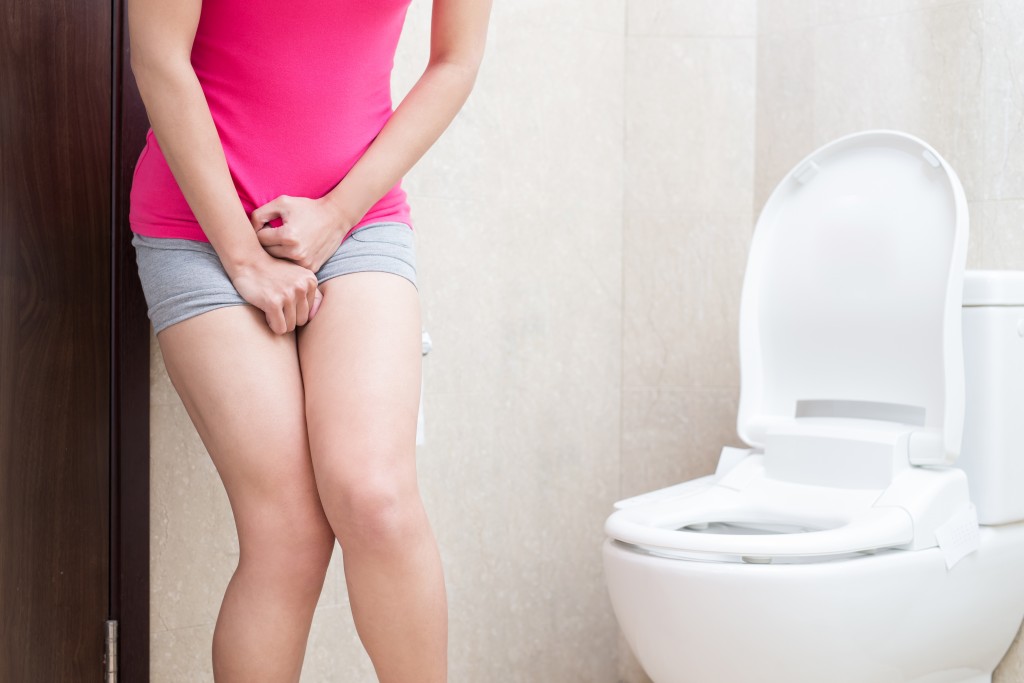Your mental health has a significant effect on your physical health.
Studies have proven over and over again how a person, who is struggling with mental health conditions, may also experience physical symptoms and be diagnosed with a physical ailment. A patient with depression, for example, may complain of chronic body pains that do not go away after rest or with medication. They are also at a higher risk of having a heart attack compared to their peers.
Anxiety, too, manifests with physical symptoms, including rapid heartbeat, high blood pressure, excessive sweating, and frequent urination.
Frequent Urination: Is It a Problem?
Frequent urination can be a sign that you have been drinking too much water or any kind of beverage. It might also be a symptom of a serious physical ailment.
If you have been sitting in a cold room and sipping a cold drink throughout the day, peeing a lot more often than normal is not something to worry about. It is just your body’s way of getting rid of the excess liquid out of your system.
It becomes concerning when frequent urination is accompanied by other symptoms. You will need to see a urology specialist to diagnose the problem and receive appropriate treatment. Usually, your doctor will ask you to undergo a series of tests, including urinalysis, cystometry, cytoscopy, or ultrasonography. A neurological test may also be ordered to ensure that the problem is not caused by a nerve disorder.
Frequent urination can be a sign of type 1 and type 2 diabetes, enlarged prostate, or stroke. Women who are pregnant will also find themselves going to the bathroom often throughout the day.
Peeing Because of Anxiety
Frequent urination may also be a symptom of anxiety.
If it happens before a big performance that you have been dreading for a long time, it likely is because you were nervous. Although scientists still do not fully understand why anxiety triggers frequent urination.
One theory that experts have suggested has to do with the body’s fear system, also known as the fight-or-flight response. The fight-or-flight response is connected to the bladder so, when it is activated, you start to feel that it is time to pee. It overrides the part of your brain that determines whether you need to run to the bathroom or not.
Other experts believe that the body’s fight-or-flight response makes the bladder work harder than usual. It produces more urine than usual which makes you pee more often.
Anxiety also can increase your awareness of your own body. That is why you can almost hear your heart pounding or feel your own skin when you are nervous. You may also get an overwhelming urge to go to the bathroom.
It happens because your mind applies a selective filter that zeroes in on one sensation. It just so happens that your mind went to your bladder.
You may have to urinate, but your mind thinks that it is an emergency even though it is not. Your brain is just tricking you and making you go to the bathroom.

Urination in Distress
You have seen it happen in movies. People, who go through extremely stressful situations, end up peeing on the spot.
It is not actually as common as you think. It takes a lot of effort to overwhelm the brain and prevent you from holding your pee.
Your brain is not that good of a multitasker. It cannot do many things at once. When the fight-or-flight response is activated, your brain focuses on keeping you safe. Holding your pee becomes less of a priority.
Shy Bladder Causing Anxiety
Paruresis, better known as shy bladder, is the inability to use the bathroom when other people are present. About 20 million Americans experience the condition and it can affect anyone regardless of age or sex.
Those who have shy bladders may feel anxiety over using the bathroom in a public place. As a result, they may avoid socializing, or they may drink less whenever they are outside to prevent the urge to pee.
This condition can be addressed by speaking with a mental health professional. Often, shy bladder is caused by trauma from being bullied, harassed, or humiliated while or after using the bathroom. The patient may be prescribed medications that manage anxiety.
Peeing is normal. Everyone does it. Sometimes, it can be a little annoying if it is making you go to the bathroom more often.
Frequent urination caused by an ongoing anxiety-inducing situation does not have to be checked by a doctor. However, if it happens often, spanning days and weeks, you should consider seeing mental health professionals. Therapy can help you manage anxiety which will decrease the number of times you have to pee throughout the day.
